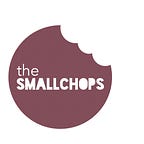Race for Vaccines: Africa in the rear.
What’s the Chop?
More than 119 million doses of the COVID-19 vaccine have been administered across the world. Meanwhile, barely a fraction of African countries are included. Is there hope on the horizon?
What is going on exactly?
Honestly it all boils down to capitalism and poverty. The richest countries are doing what they do best, buying most of the available doses for their citizens: Canada is the biggest culprit having pre-ordered enough to vaccinate each of her citizens 6 times over. In an address to the UN on 17 February, the Secteraty General, Antonio Guterres, reported that just ten countries have administered 75 percent of all vaccines.
This unequal distribution of vaccines has meant that less buoyant countries are sidelined. Even worse, vaccines are touted at higher prices for African countries: South Africa purchased the Oxford/AstraZeneca vaccine at USD 5. 25 compared to USD2.16 for Europe. Europe also has a 24% discount on the Pfizer vaccine. The cheaper rates for the EU are as a result of mainly negotiating as a bloc as opposed to as individual countries as well as funding the research and development phase.
Have any efforts been made towards solving these problems?
South Africa and India had envisioned the scrumble. In October 2020, they requested the World Trade Organization (WTO), to waive patent rights during the duration of the pandemic, opening up vaccine production to anyone with the resources as opposed to limiting production to a few pharmaceutical companies who own the intellectual property rights. But some countries (e.g. UK and Switzerland) opposed the idea, majorly because they are home to the small circle of manufacturers and they were bound to lose.
So we’re not getting vaccines?
We’ll definitely still get vaccines just further down the line. The reality is that folks anticipate that most poor countries will achieve mass vaccination by 2024 while the richer ones are expected to achieve this by the end of 2021. There are efforts to promote equal access e.g. the WHO led COVAX, aims to distribute 2 billion COVID-19 vaccine doses by end of this year, to mostly poor countries. Africa will get 690 million doses with the first batch arriving February 2021. Also, the African Union has secured 270 million doses of vaccine for member countries which will be distributed in 2021 and 2022.
What are we doing for ourselves?
Wealthier countries in Africa have made efforts to get vaccines. South Africa recently received 1.5 million doses with plans for more. Other countries have talked about procuring the vaccines: Ghana aims to procure 17.6 million doses of Covid-19 vaccine by the end of June. However, some countries are still lacking in infrastructure, some vaccines, like the Pfizer, need cold chain facilities for storage and distribution. In addition, the poor health network in many African countries may also be a hindrance as well as insecurity, which is likely to pose difficulty in getting the vaccines to communities in the hot zones. Cultural beliefs leading to vaccine misinformation and hesitancy also need to be combated decisively. Resources should be diverted to solving these issues to ensure a smooth vaccination process.
Your Takeaway?
The COVID-19 vaccination situation is reminiscent of when retroviral treatment for HIV/AIDS began. African countries despite having a larger number of people living with HIV/Aids got the drugs 6 years later than the rest of the world. In order to avoid a repeat of this, African countries need to seat up and plan appropriately and have vaccine dedicated budgets because after all Cash is King.
What can I do?
You can find out the vaccination plans in your country. Sign petitions and encourage your Government to divert sufficient funds to securing vaccines. You can play a big role in tackling vaccine hesitancy by educating people in your community about the benefits of the vaccine.
